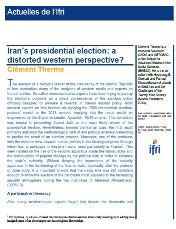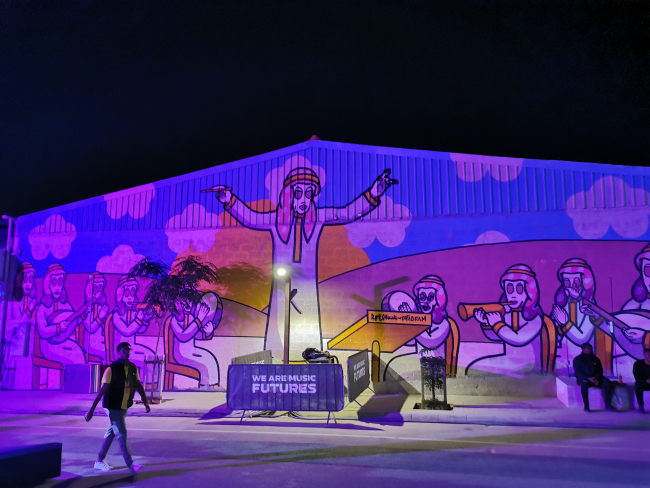Iran's Presidential Election: a Distorted Western Perspective?

The election of a religious leader at the presidency of the Islamic Republic of Iran contradicts many of the analyses of western media and experts on Iranian politics.
The election of a religious leader at the presidency of the Islamic Republic of Iran contradicts many of the analyses of western media and experts on Iranian politics. So-called neoconservative experts have been trying to portray the election’s outcome as a direct consequence of the sanction policy officially designed to provoke a reversal in Iranian nuclear policy. Most western experts on Iran insisted on applying the 2009 presidential elections process" model to the 2013 contest, implying that the result would be engineered by the Supreme Leader, Ayatollah Ali Khamenei. This conviction was crucial in presenting Saeed Jalili as the most likely winner of the presidential election. Nevertheless, beyond the Iranian case, the final result primarily indicated the methodological limit of any political analysis pretending to predict the result of an election process. Moreover, one of the problems with the western view towards Iranian politics is the ideological prism through which Iran is portrayed in western media, most particularly in France. This view insisted on the rise of the security apparatus inside the Islamic state and the manipulation of popular feelings by the political elite in order to enhance the state’s authority. Without denying the importance of the security apparatus in the functioning of the Islamic state, especially after the protests of June 2009, it is important to note that the ruling elite was still confident enough to allow the election of the candidate most opposed to the increasing security atmosphere during the two mandates of Mahmud Ahmadinejad (2005-13).
Clément Therme is a Research Associate, CADIS and CETOBAC at the School for Advanced Studies in the Social Sciences (EHESS). He is the co-editor (with Houchang E. Chehabi and Farhad Khosrokhavar) of a book entitled Iran and the Challenges of the Twenty-First Century (Mazda Publishers, 2013).

Available in:
Regions and themes
ISBN / ISSN
Share
Download the full analysis
This page contains only a summary of our work. If you would like to have access to all the information from our research on the subject, you can download the full version in PDF format.
Iran's Presidential Election: a Distorted Western Perspective?
Related centers and programs
Discover our other research centers and programsFind out more
Discover all our analyses
RAMSES 2025. Between Powers and Powerlessness
Never before have there been so many powers able to upset the international balance of power, and never before have the dominant powers seemed so powerless to counter the fragmentation of the world.
Out of Thin Air but More than a Mirage: The Politics of Saudi Arabia's Nascent Music Industry
This study critically examines Saudi Arabia’s nascent music industry, which is promoted as a key element of Vision 2030, Crown Prince Mohammed bin Salman’s strategic framework to diversify the kingdom’s economy. It explores how state-led investments in music and entertainment intersect with authoritarian governance. The author neither dismisses these investments as conspicuous spending nor reproduces an alarmist narrative of impending cultural imperialism. The article takes a political sociology approach to understand how Saudi entertainment plans consolidate domestic power and reshape regional cultural landscapes.
Hostage diplomacy of the Islamic Republic of Iran. The case of Europeans detained in Iran
The so-called hostage diplomacy of the Islamic Republic of Iran refers to a political and diplomatic strategy in which Tehran uses the detention of Western nationals, dual citizens, or Iranian citizens residing in Europe, Australia, or the United States as leverage in diplomatic negotiations. This practice aims to exert pressure to secure political, economic, or diplomatic concessions as part of Tehran’s asymmetric response strategy. Hostage diplomacy remains a controversial yet effective tool from the perspective of the Islamic Republic of Iran, given its context of economic sanctions and diplomatic isolation.
Is the Republican People’s Party (CHP) Rising from the Ashes?
The victory of the CHP [Cumhuriyet Halk Partisi, Republican People’s Party] in the Turkish municipal elections of March 2024 firmly established it as the leading party of opposition to the Islamic-conservative AKP [Adalet ve Kalkınma Partisi, Justice and Development Party], which has been in power since 2002.







